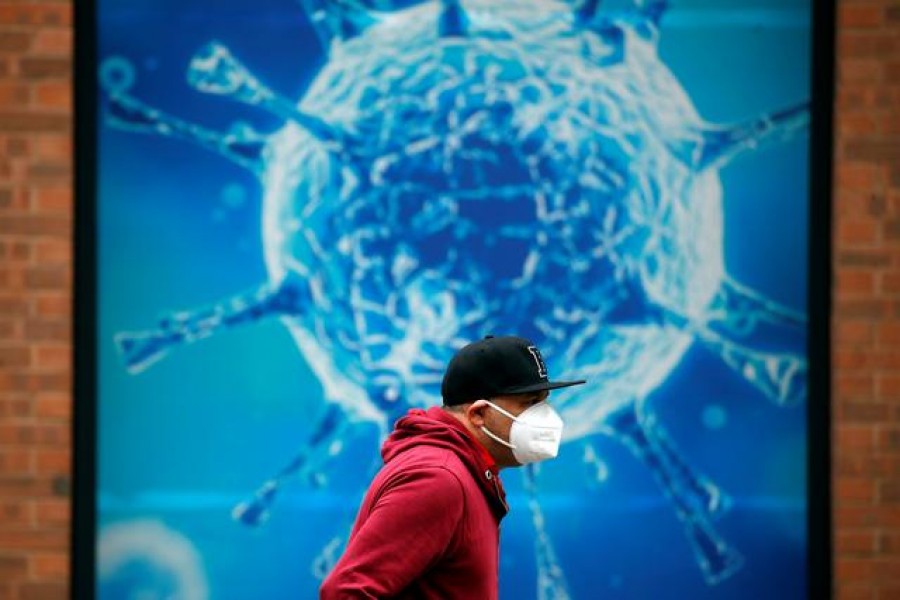The following is a roundup of some of the latest scientific studies on the novel coronavirus and efforts to find treatments and vaccines for Covid-19, the illness caused by the virus.
New “DARPin” drugs may be superior to antibody drugs
A new class of drugs called DARPins may be better than monoclonal antibodies at neutralising the coronavirus even when it mutates, researchers wrote in a report on medRxiv published on Wednesday ahead of peer review. DARPins, which consist of protein structures that play important roles in protein interactions, are smaller and cheaper to produce than monoclonal antibodies. In lab tests, two experimental DARPin drugs - ensovibep and MP0423 - were "highly potent" against mutations of the virus identified in the UK and in South Africa and other variants circulating around the world. MP0423 targets three proteins on the virus that help it break into cells. Even if one protein mutates, the drug can still attack the other two and neutralise the virus, the report says. "These results, combined with the relatively small size and high production yields of DARPin molecules, suggest ensovibep and MP0423 as superior alternatives to monoclonal antibody cocktails," the researchers wrote.
“Good” HDL cholesterol levels tied to lower Covid-19 risks
Healthy levels of "good" HDL cholesterol are associated with a lower risk of severe Covid-19, said a study posted on medRxiv on Jan. 26 ahead of peer review. Researchers analysed records of 317,306 participants in the UK Biobank study, including 869 people who were hospitalised for Covid-19. Participants with healthy HDL levels were at lower risk of becoming infected with the new coronavirus, and those who did become infected were less likely to be hospitalised. Healthy levels of HDL are at least 40 mg/dL (1 mmol/L) for men and 50 mg/dL (1.3 mmol/L) for women, according to US guidelines. After taking health behaviours, socioeconomic status and other factors into account, the odds of hospitalisation for Covid-19 went down 9 per cent with every 0.2 mmol/L (roughly 8 mg/dL) increase in HDL-cholesterol, the study found. Earlier studies of Biobank participants found the same inverse relationship between HDL and hospitalisations for other infectious diseases, the authors said. The study does not prove that HDL itself protects against Covid-19. Still, the authors said, the anti-inflammatory and immune properties of HDL may explain their findings.
Viral load most important factor in transmission
The amount of virus in the noses and throats of Covid-19 patients is the most important factor in determining whether they will infect others, according to a report published on Tuesday in The Lancet Infectious Diseases. Researchers in Spain studied 282 patients and 753 of their recent close contacts. While household members most often became infected, the viral load "was the most important factor in determining whether transmission occurred between a case and their contacts," said coauthor Michael Marks of the London School of Hygiene & Tropical Medicine. "Whether the case was coughing or had other symptoms didn't seem to play a major role," he said, reinforcing that even patients without symptoms need to isolate themselves. He said health authorities might want to consider more enhanced contact tracing for individuals with higher viral loads. A separate study by UK researchers, which has not yet been peer-reviewed, reported similar findings.


